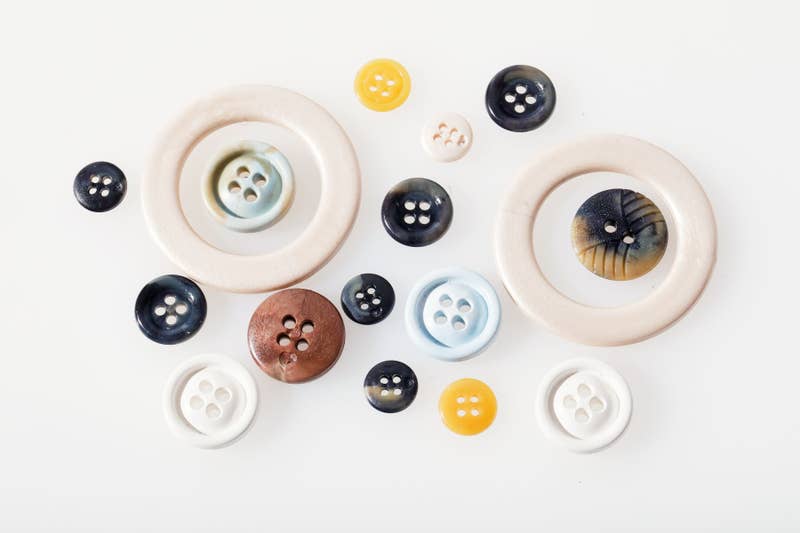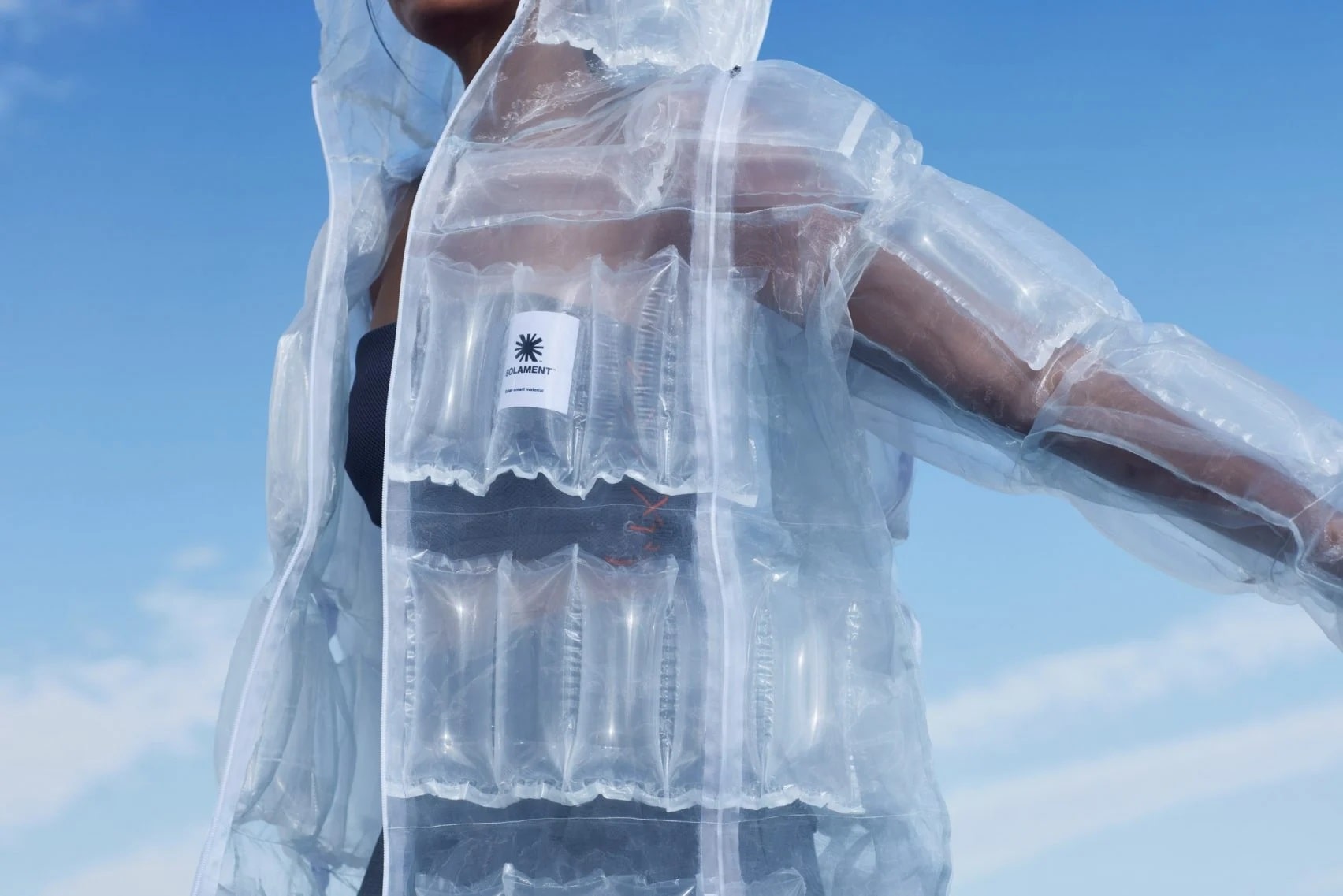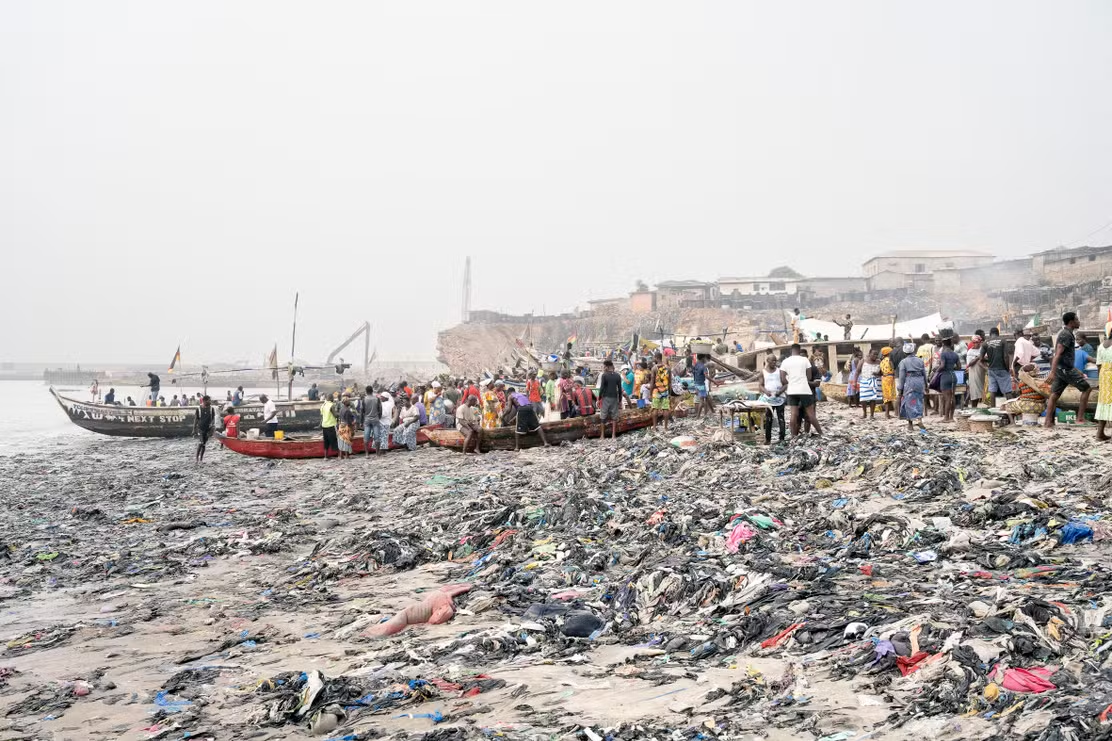
Textiles for the Future: Small and Large-scale Actions to Reverse the Trend
Photo: Jean-François Fort / Hans Lucas
Textile pollution: Ghana case
Among the many sources of marine pollution, textile waste is also playing a significant role. One of the most emblematic cases concerns Accra, Ghana, where every year millions of tonnes of second hand clothing – from Europe and the northern hemisphere (including Italy) – are transformed into a pile of non-manageable waste. The alarm was raised in a recent report “Fast Fashion, Slow Poison: The Toxic Textile Crisis in Ghana” made by Greenpeace Africa e Greenpeace Germania, which documents the environmental and health impacts caused by the surplus of global fast fashion.
“Textiles of the Future”: european strategy
The European Commission is responding to the environmental crisis linked to consumerism by launching the ‘Textiles of the Future’ initiative, a public-private partnership established in 2024 to guide the green and digital transition of the European textile industry. The initiative is part of the broader European Strategy for Sustainable and Circular Textiles (2022), which promotes an integrated and innovative approach to the design, production and recycling of textile products.
The implementation of the actions is entrusted to the European Technology Platform for the Future of Textiles and Clothing (Textile ETP), a non-profit association in the European textile sector, and coordinator of the stakeholder community (companies, researchers, professionals). The strategic priorities and future objectives are described in the Strategic Research and Innovation Agenda (SRIA), which will also guide the upcoming calls for proposals for the Horizon Europe 2025–2027 programme.
Materially's contribution to innovation in textiles
Materially has long been involved in European partnerships to contribute to innovation and skills development in the textile sector. Building on the experience gained at Material ConneXion Italia, our research team boasts collaborations with leading institutions in both research and knowledge transfer. A history of the European projects we have contributed to, can be found on our website here.
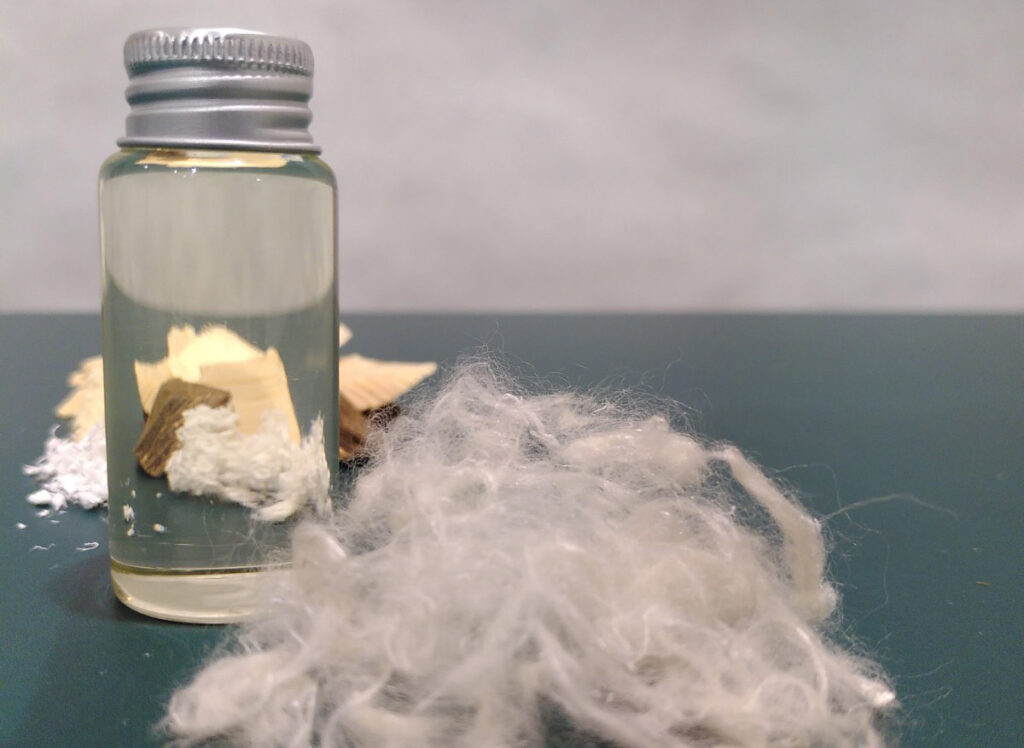
In4Sustain: training and sustainability in the fashion industry
The team is currently involved in the In4Sustain project, which aims to promote sustainability in the textile and clothing industry through innovation in training. The project, co-funded by the European Union through Erasmus Plus funds, aims to improve the skills of professional trainers and workers in the sector, by providing up-to-date content and digital – interactive teaching tools.
In May, Materially hosted two meetings involving local project stakeholders – companies and trainers in the textile sector as well as end consumers. The highly stimulating discussions allowed us to gather valuable experiences and suggestions for the In4Sustain initiative, strengthening our relationship with the Lombardy textile manufacturing sector.
The meetings, Focus Groups – with companies, trainers and living labs involving sustainability-oriented companies and end consumers – were replicated in the various countries of origin of the partners, and the results were published in two reports now available on the project website: https://in4sustain.eu/outputs/
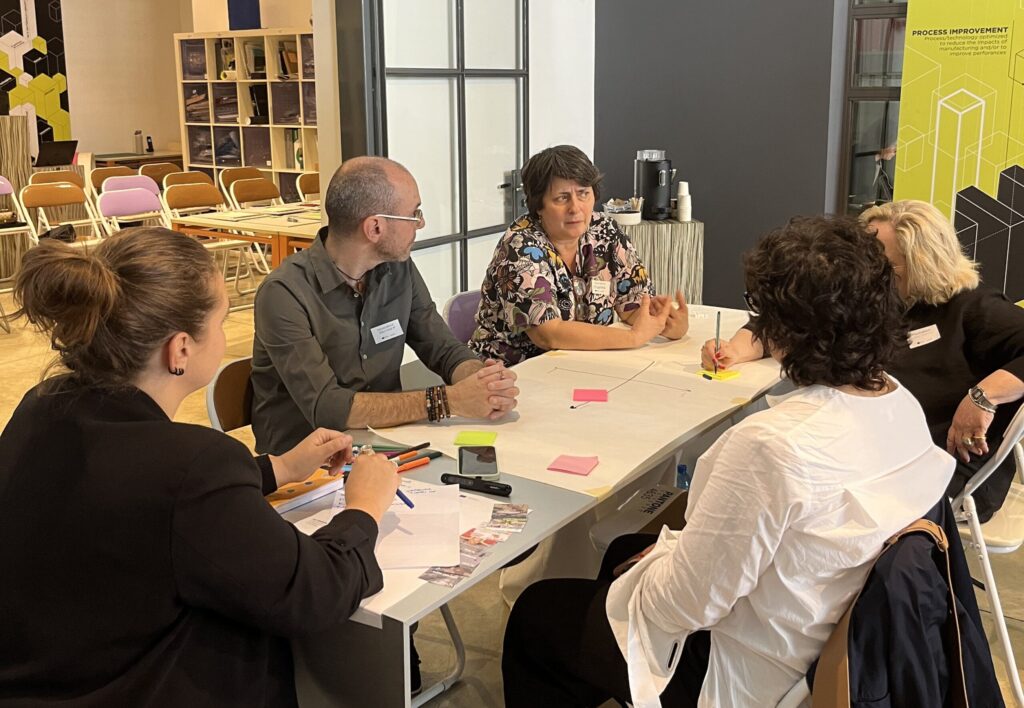
Are you a company in the textile sector looking to re-innovate your materials, processes and products in collaboration with research institutions and other players in the supply chain?
Contact us and we will evaluate the upcoming Horizon Europe calls for proposals together, based on the three priority areas:
- Priority I: Sustainable Materials & Clean Processes
- Priority II: Digital Supply Chains & New Business Models
- Priority III: Advanced Manufacturing & High-performance Textiles

